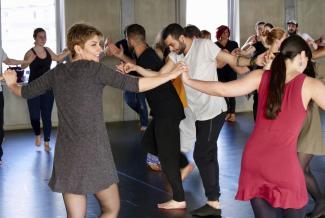A case study
A family’s blessing

The psychologist in attendance concluded from this and other responses that the candidate had a pronounced dependent-personality disorder and urgently needed a confidence-boosting workshop. When asked how she reached this conclusion, even though the young woman concerned had a very successful history and was applying for pilot training, the German psychologist said that the candidate had put the family’s will before her own, and did not express a single sentiment or wish in first-person form.
The psychologist was then told about the emphasis that the Syrian culture and the Arabic language place on the collective and was asked to reconsider her conclusion. In the course of a subsequent supervision, the psychologist reported with admiration and astonishment that the young Syrian had managed to convince her grandmother and an uncle to support her plans. Thanks to these senior relatives, she had won her parents’ backing as well. She had not only focused on her dream, but had made sure it came true in the context of her family. She did not want to start her training without the blessing of the family, since she believes that maintaining “peace in the soul” is far better than fulfilling a dream at the cost of a “broken soul”.
This example shows how the mental template of an observer can influence a psychological evaluation. Conversely, the German psychologist, with her focus on individual self-determination, could have been evaluated in Syria as an egotistic person with no consideration for others. Neither interpretation is unbiased; both are rooted in the observers’ own cultural standards. (sgb)











